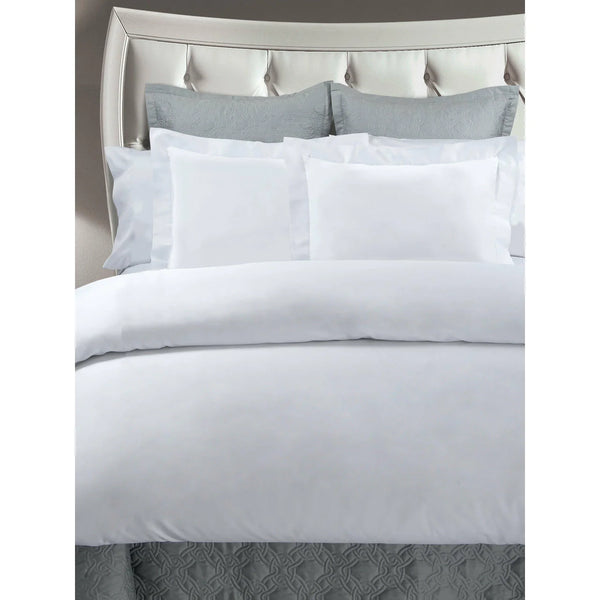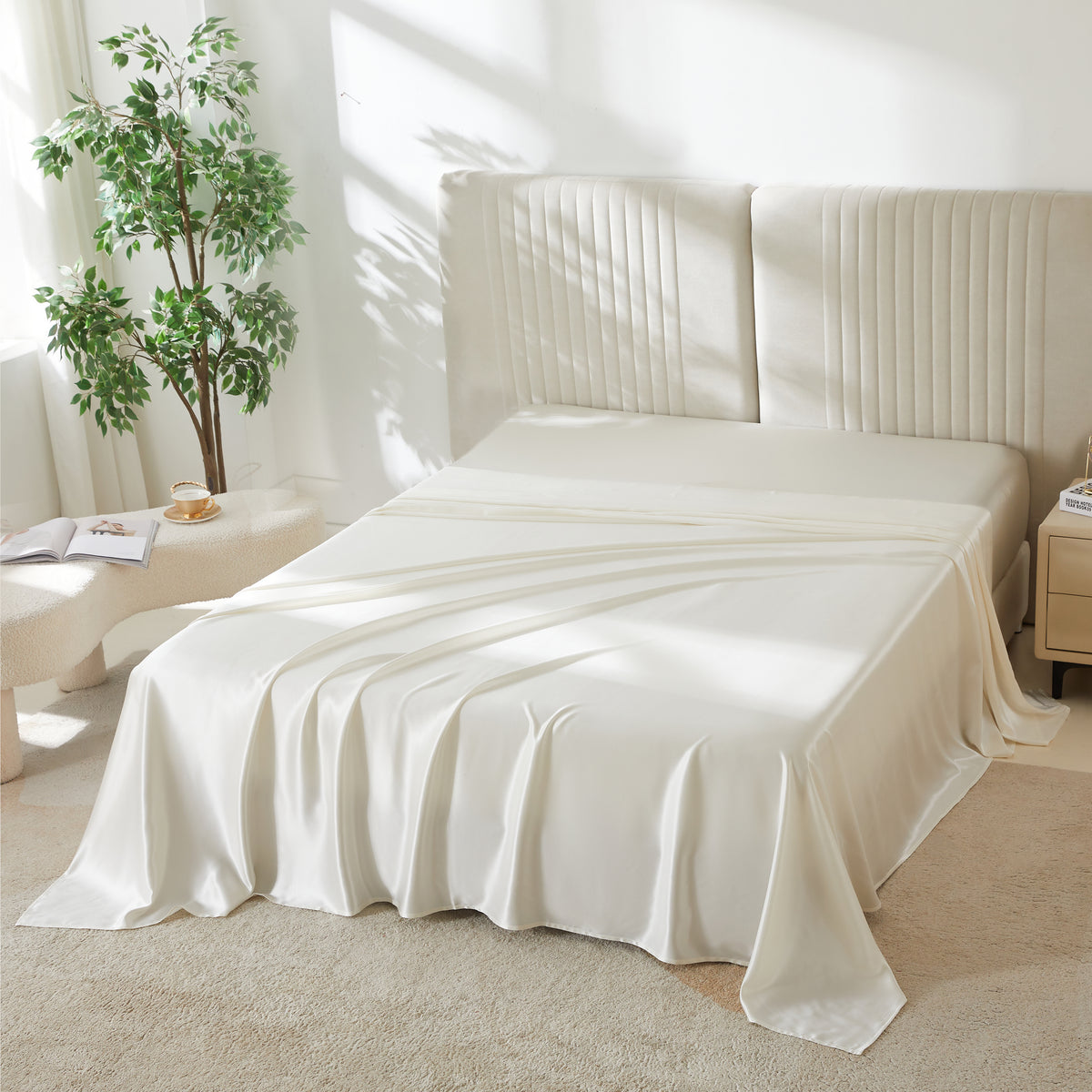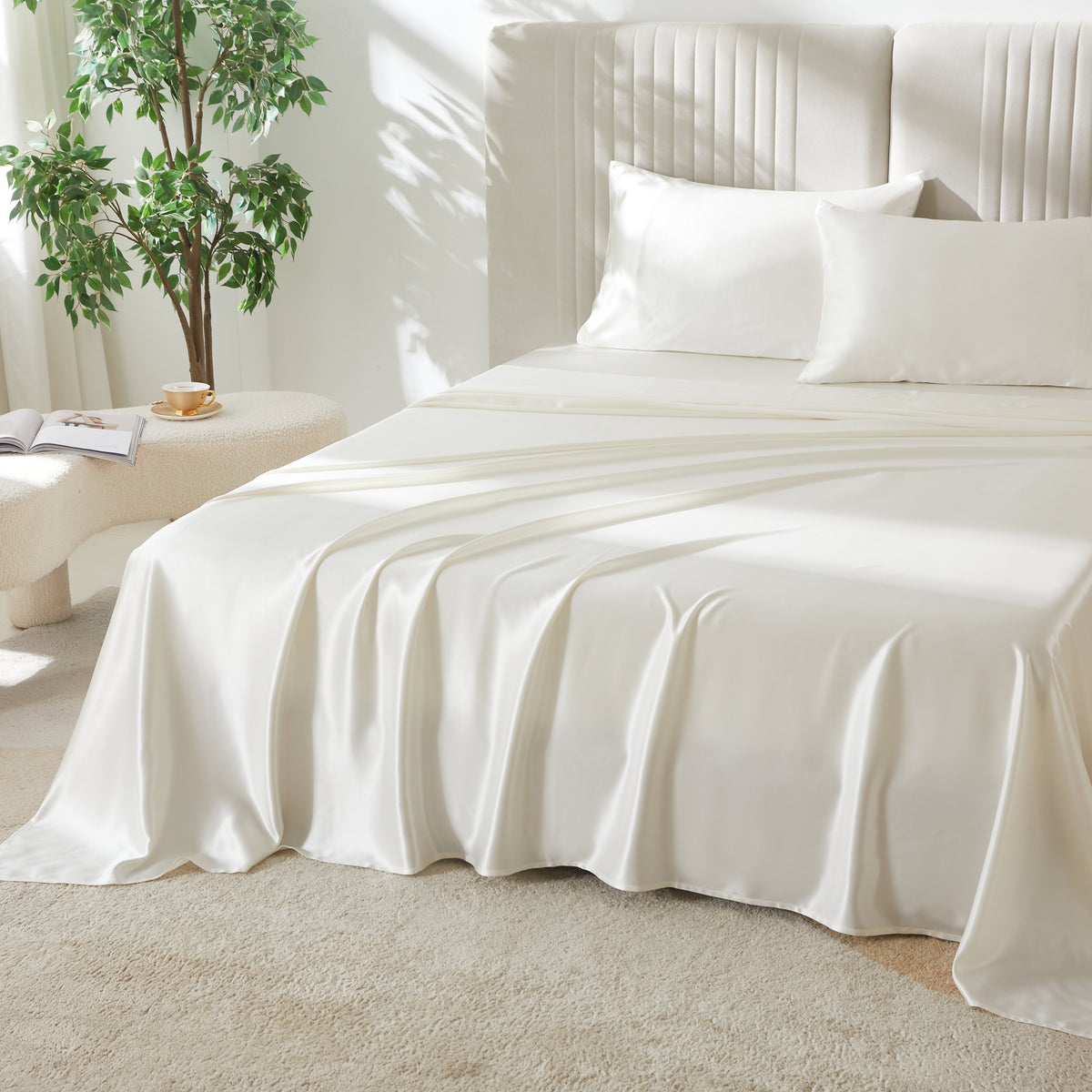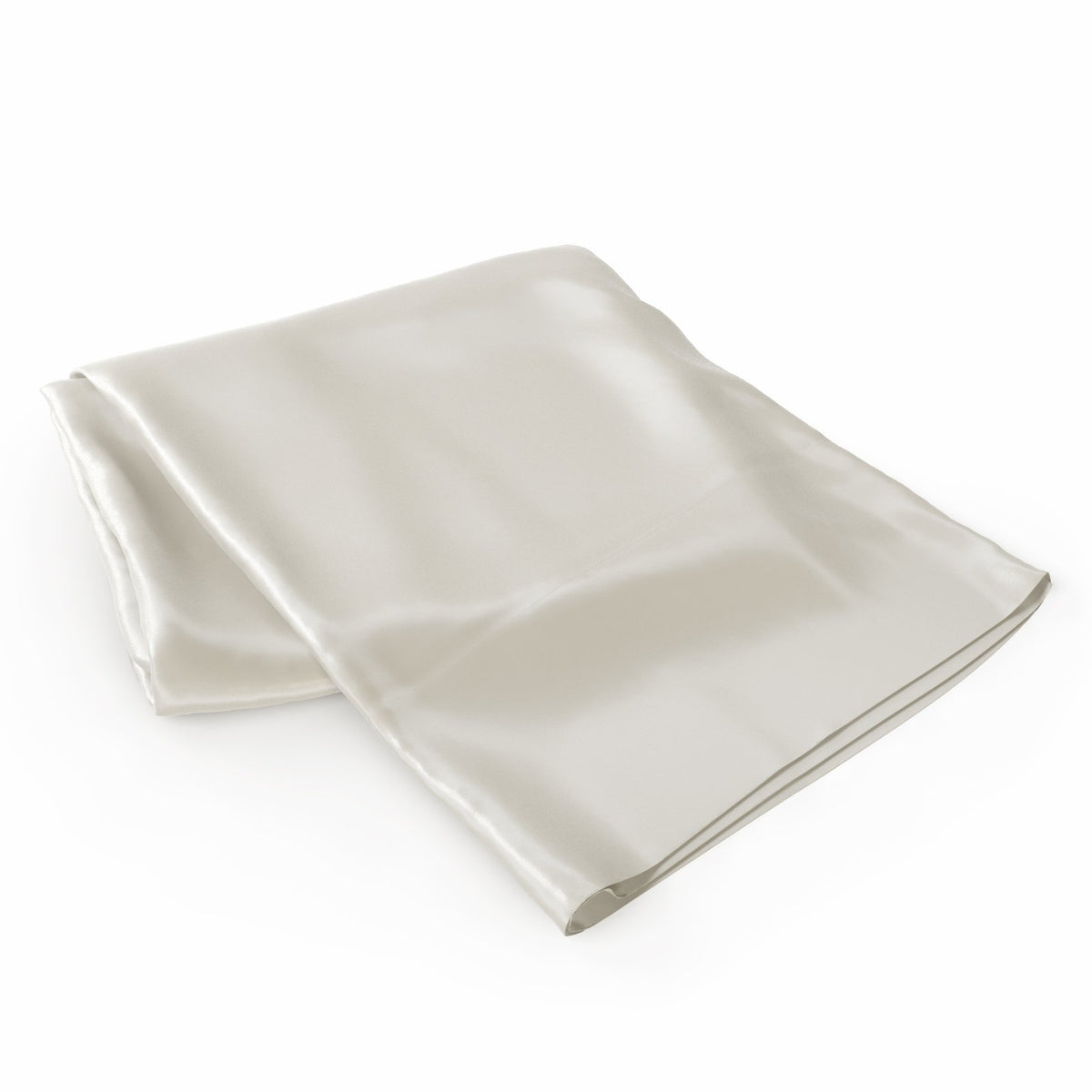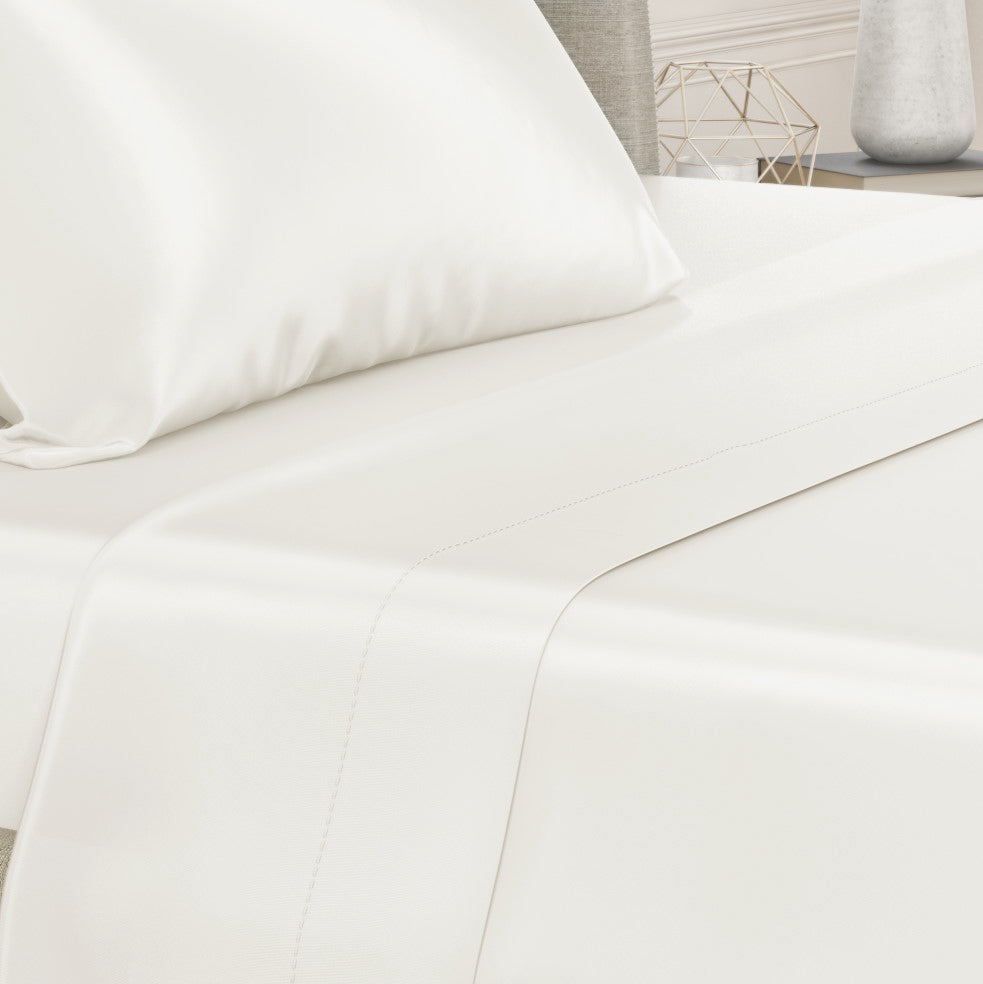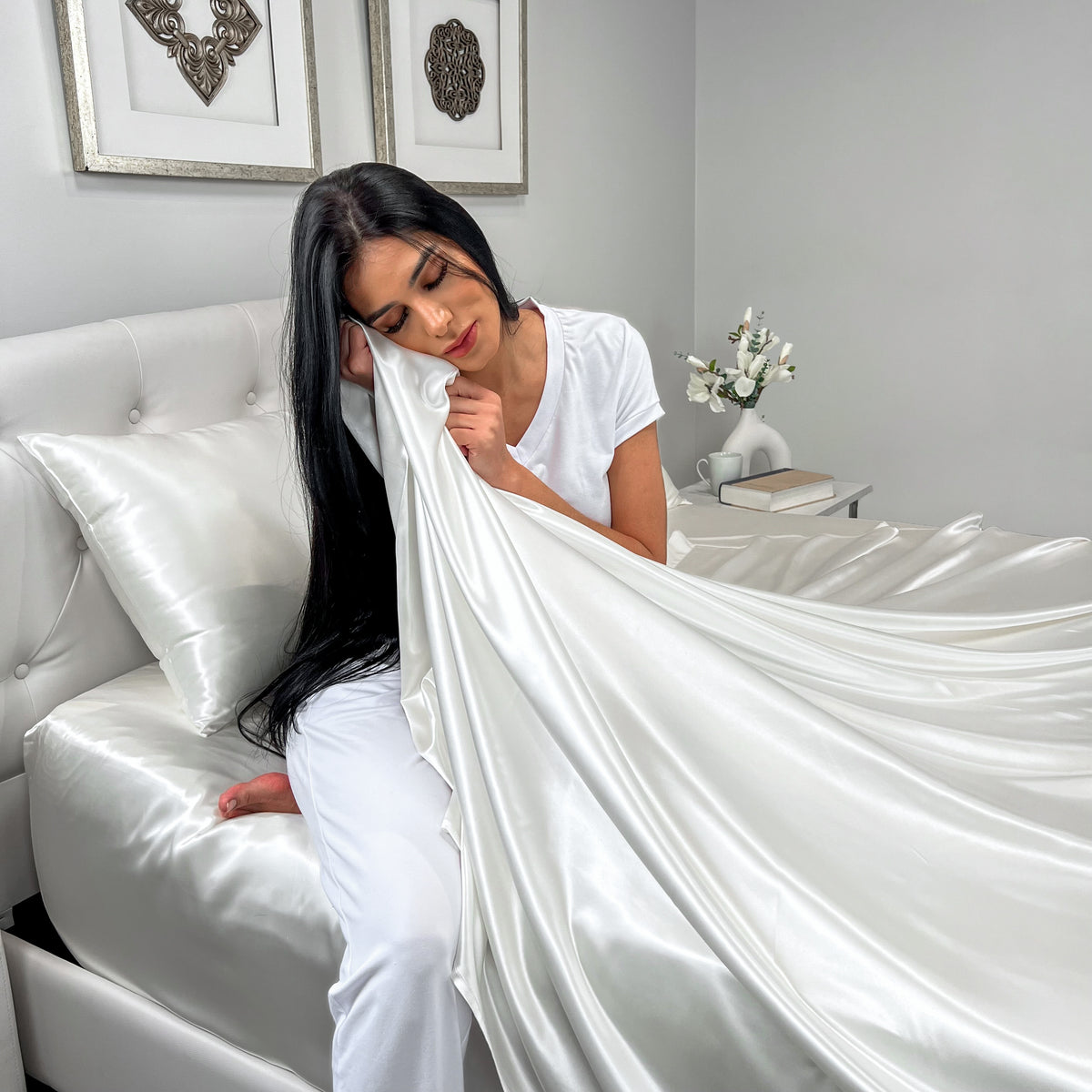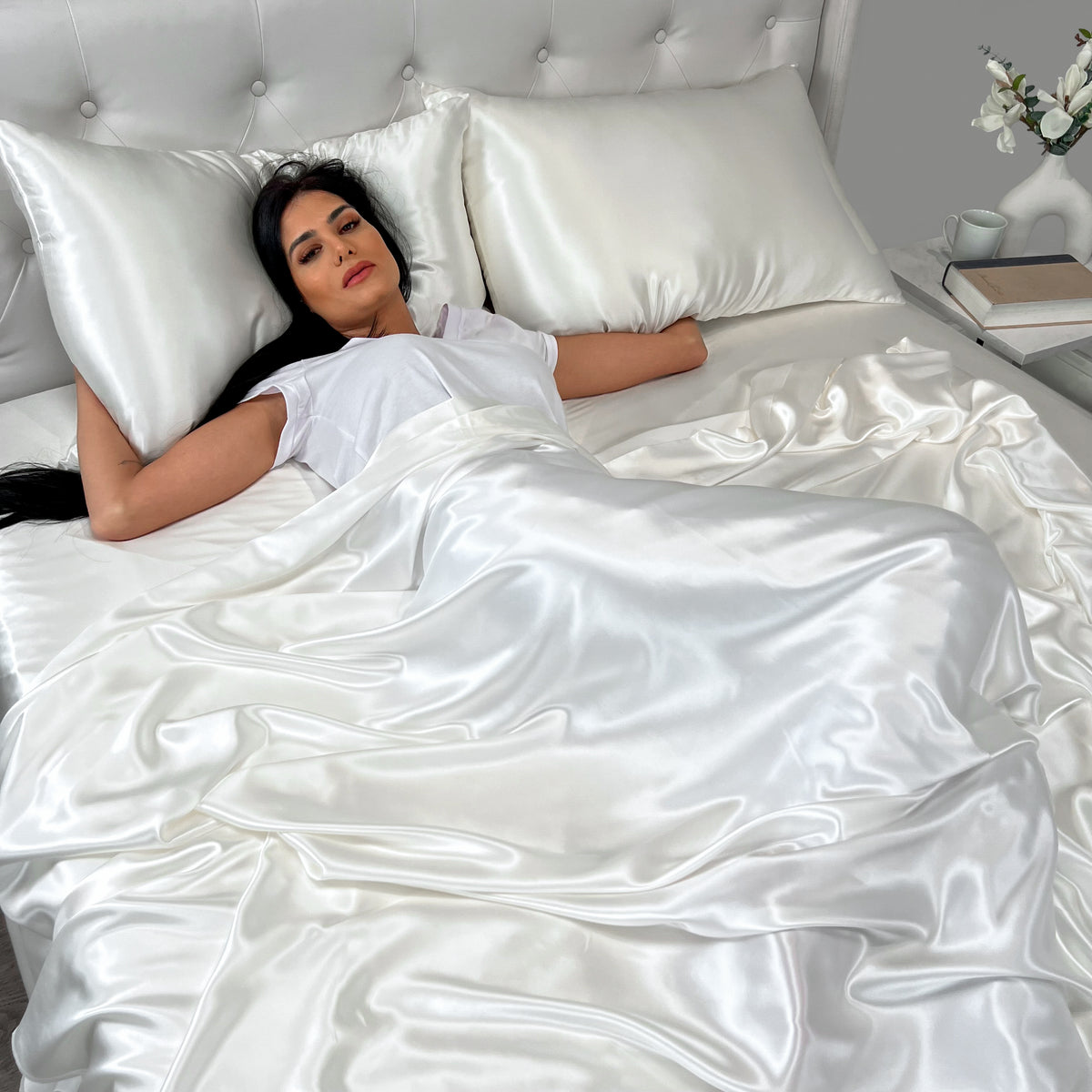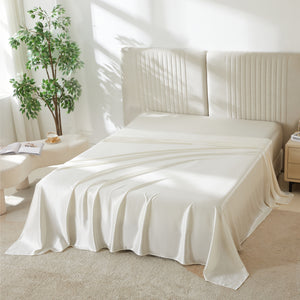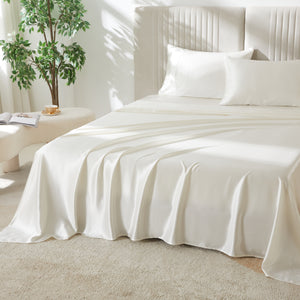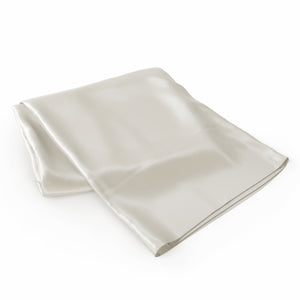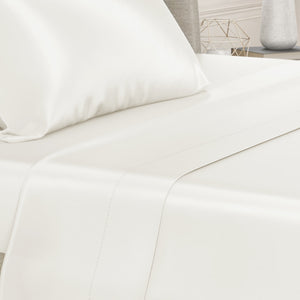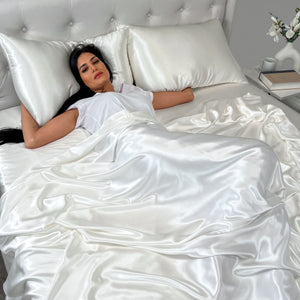Inside this Article:

Silk bed sheets are one of life's little luxuries and for many, deciding to splurge on silk feels like a significant investment. Much like purchasing a brand new Mercedes Benz, you are going to do your research before handing over your card. You want to look under the hood, so to speak before committing. You want to make sure that your sheets will provide you will long-term comfort. While we wish we could assign a number to a silk sheet's lifespan, it truly comes down to a few things:
1. Following proper care instructions.
2. Taking certain precautions to avoid damage.
3. Having a backup sheet set
4. Other Considerations
Is Silk Strong?
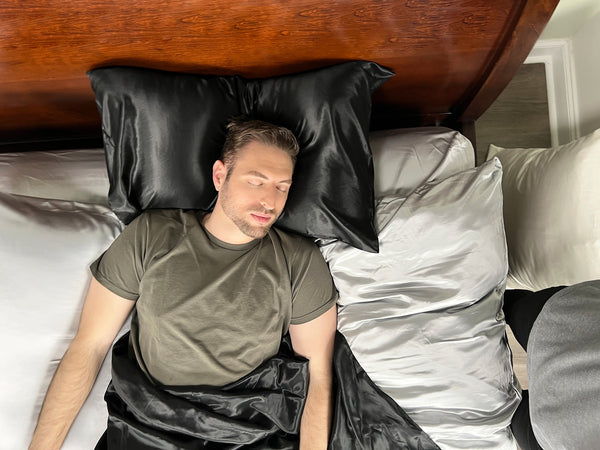
Despite its luxurious sheen and associations with opulence, silk bedding is much more robust than commonly believed. Its strength, particularly for its weight and delicacy, often contrasts with the perception of its fragile nature, which arises from its smooth texture and inherent luster. Factors like rough handling, encounters with harsh detergents, or abrasive interactions can compromise the fabric's aesthetics and strength. Thus, while real silk boasts strength, it demands gentle care to preserve its elegance and durability.
1. How to take care of silk properly?
Washing silk sheets and other silk products is easier than most people imagine. No dry cleaning is needed. Not only are mulberry silk sheets machine washable (on delicate with a cold water cycle) but they also dry rather quickly as they are not absorbent. Unlike cotton which is extremely absorbent and thus makes for a wonderful bath towel, silk repels sweat and moisture and allows those who sleep hot or perspire in the night to wake up dry and refreshed. For more in-depth care instructions read this blog.
- Wash them in cold water on a gentle cycle.
- Turn silk pillowcases inside out before washing.
- Use a gentle enzyme-free detergent that is designed for silk.
- Use a fine mesh laundry bag for delicates when washing in a machine to avoid friction and tangling.
- Do not use bleach or fabric softener.
- Hang dry your silk sheets or if you must use a dryer select the air fluff setting for only a short period of time.
2. Special Precautions to Avoid Damage

Will your silk sheets pass the test and become a constant staple of your bedroom for years to come or are you better off with good old cotton sheets? The answer is threefold. Yes, high-quality pure silk sheets have the potential to last for a long time but there are factors that will lead to faster degradation. Here are the three things you can do to prevent premature wear and tear on your silk sheets:
Hand & Foot Care: It might sound peculiar, but manicured hands and feet make a difference. Rough nails can snag delicate silk, causing tiny tears. To preserve your sheets' pristine condition, it's essential to keep nails smooth.
Facial Hair Watch: While silk does magnificent things for beards, a five o'clock shadow, coarse facial hair stubble and shaved head stubble are all like sandpaper to a silk pillowcase and silk sheets. Over time, the friction from the scratchy hairs can wear at the integrity of the silk, causing significant damage.
Avoid Heat: Silk and heat don't mix well. It may seem tempting and time-saving to throw your silk sheets in the dryer, especially if you've washed them right before bed and are eager to sleep on them. Resist the urge to pop your sheets into the dryer, even if it seems convenient. Heat can damage silk fibers, leading to brittleness and loss of sheen. Additionally, exposing silk bedding to heat can lead to shrinkage and loss of luster. The tumbling action of the dryer can contribute to a decrease in silk's natural sheen and smoothness. Always follow care instructions closely.
Lastly, a note for pet lovers: Our team at Mulberry Park Silks treasures our pets, but their claws might not be silk-friendly. For pet-friendly bedding options, consider materials like bamboo or linen. Otherwise, try to keep your beloved animals off the silk to avoid potential snags.
3. Having Backup is Key
Just as wearing the same pair of shoes daily accelerates their wear, so too does sleeping on a single set of sheets every night. The fitted sheet, in particular, bears the brunt of nightly use, showing signs of wear more quickly. Recognizing this, many of our discerning customers opt to purchase one or two extra fitted sheets, especially from our exclusive 22 momme collection which offers the flexibility of individual pieces. This not only prolongs the life of the entire set but also ensures consistent comfort night after night.
4. Other Considerations
While silk is an amazing fabric, a downfall is that when woven into a charmeuse fabric it does not have much stretch.
Mattress Softness: Our fitted sheets are fully elasticized for a snug fit on your mattress, but this means it holds tight and you don't have to worry about it slipping off the edge or that dreaded side of the bed lifting up. When you sink into a soft cozy mattress, stress can be put on the fabric that can lead to tears. Those with firmer mattresses have fewer stress points to be concerned about.
Choose Your Side of the Bed: Sleeping on only one area of the bed, singles that get the center to sprawl out, or couples that have your set side can contribute to wear. Pressure and friction put on one area for an extended period of time can cause stress points to be aware of.
pH Level:
The best pH for washing silk is close to neutral, which is around a pH of 7. Water that is too alkaline or too acidic can damage silk fibers.
Water Types:
-
Tap Water: In general, using clean, lukewarm tap water is suitable for washing silk. Just make sure it's not too hard or too soft. Water hardness can vary by region, and excessively hard water may contain minerals that can build up on silk and affect its texture over time. If you have very hard water, consider using distilled or filtered water.
-
Chlorinated Water: Avoid washing silk in chlorinated water, such as swimming pool water, as chlorine can weaken and damage silk fibers.
-
Saltwater: Silk can be damaged by prolonged exposure to saltwater, so it's best to avoid wearing silk in saltwater environments or washing it with salty water.
-
Distilled or Filtered Water: If you're concerned about the quality of your tap water, you can use distilled or filtered water to wash silk. This ensures that there are no impurities or minerals that could harm the fabric.
Why Is Silk So Special
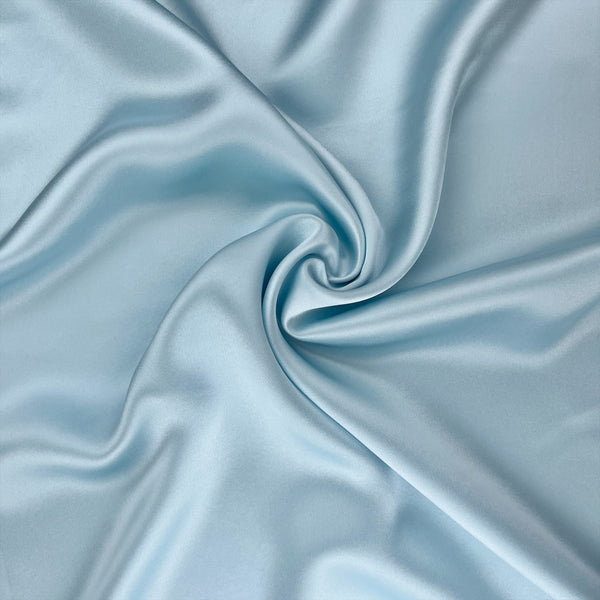
One of the remarkable aspects of mulberry silk is its natural hypoallergenic and antimicrobial properties which make it a perfect complement to sensitive skin. Its smooth texture not only enhances the sheen of our hair but also promotes a radiant complexion. With a rich history dating back to 3000 BCE, as evidenced by historical archives and archaeological finds, silk's allure is timeless. Unlike satin sheets, typically crafted from synthetic materials like polyester, silk sheets offer these inherent benefits. Although cotton is also a natural fiber, when closely inspected under a microscope, cotton's rough nature is evident. Even the softest Egyptian cotton does not measure up to the smooth charmeuse weave of our genuine mulberry silk. It's easy to see why so many people have been drawn to this magical textile.
Luxury Beyond Silk: The Alternatives You Need to Know
We're passionate about silk, but we recognize it's not the ideal choice for everyone. That's where cotton sateen steps in. While it shares a similar sheen with silk fabric, cotton sateen offers a unique touch all its own. Both materials are smooth, but there's a distinct feel to cotton sateen that resonates with many. Its look? Elegant, yet subtly different from silk. For those eyeing longevity without giving up on luxury, cotton sateen finds a sweet middle ground. It tends to stand up to daily wear a bit more gracefully, whereas silk can be a touch more delicate. If you're looking to explore other luxurious bedding options, our sister company, Fine Linen and Bath, offers a range from premium Giza cotton to top-tier European bed linens.
Pro Tips for extending the life of your silk sheets
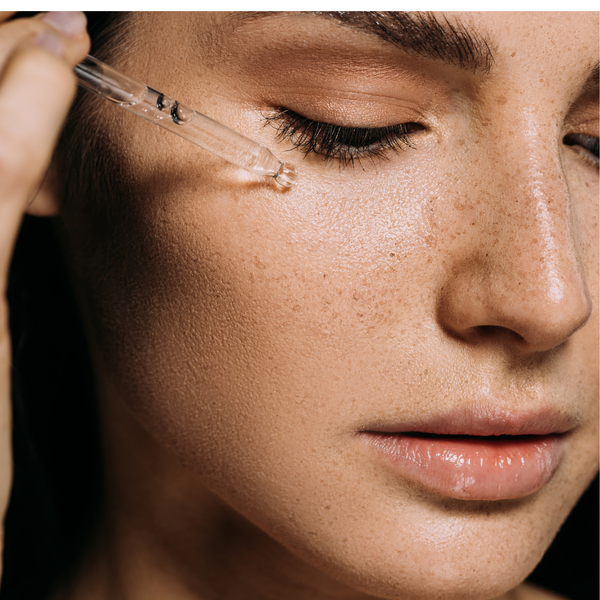
- Avoid sleeping with facial creams and heavy lotions that contain bleach or glycolic acid; these can react with the silk and cause yellowing or weakening of the silk fibers.
- Rotate your sheets with another set, allowing the fibers to rest between uses. This will prolong their lifespan significantly.
- Place a mat or rug beside your bed. This will help you avoid transferring dirt and oils from your feet to the bed.
- Using Proper precautions when steaming or ironing your silk bedding. Click here to learn how to do it the right way.
-
Consider your water's PH: Silk prefers a pH level close to neutral, around 7. Water that is too alkaline (high pH) or too acidic (low pH) can weaken the silk fibers and cause damage over time.
Water Types:
-
Tap Water: In general, using clean, lukewarm tap water is suitable for washing silk. Just make sure it's not too hard or too soft. Water hardness can vary by region, and excessively hard water may contain minerals that can build up on silk and affect its texture over time. If you have very hard water, consider using distilled or filtered water.
-
Chlorinated Water: Avoid washing silk in chlorinated water, such as swimming pool water, as chlorine can weaken and damage silk fibers.
-
Saltwater: Silk can be damaged by prolonged exposure to saltwater, so it's best to avoid wearing silk in saltwater environments or washing it with salty water.
-
Distilled or Filtered Water: If you're concerned about the quality of your tap water, you can use distilled or filtered water to wash silk. This ensures that there are no impurities or minerals that could harm the fabric.
-
Like that prized car, if taken care of, your silk sheets can serve you well for years, granting you a night of unparalleled comfort and opulence. However, the mileage varies and it’s up to you to maintain and care for them.
Still sure you want silk sheets and are not sure which ones are right for you?























